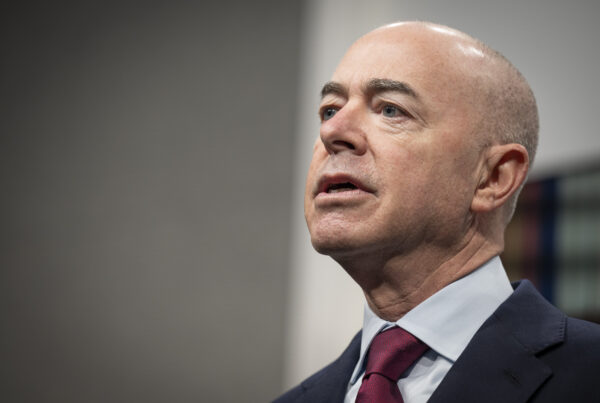In the United Kingdom, some workers got a taste of what it’s like to work 32 hours a week instead of the typical 40.
The trial run was part of a study evaluating the benefits of a four-day work week for both companies and employees. The trial worked so well that some of the companies are planning to keep the reduced work time.
Jack Kellam is head of operations at Autonomy, one of the one of the organizations that helped run the pilot program and he joined Texas Standard to discuss their results. Listen to the interview above or read the transcript below.
This transcript has been edited lightly for clarity:
Texas Standard: How long did you all run this study for?
Jack Kellam: So the main trial period was for six months between June and December 2022. However, we were able to have a follow up study, which came out in March this year, which then looked at the following year’s data through 2023 to see how some of the really positive effects we saw on worker wellbeing and company performance, how they fared an additional 12 months later.
Well, what were some of those benefits? Let’s get into them.
The most extensive benefits we saw… this was through a mixture of quantitative data. So it was surveys given to employees, as well as qualitative interviews, which 39% of employees were less stressed after moving to reduced working hours. 71% had reduced levels of burnout. We also saw anxiety, fatigue and sleep issues decrease. Mental and physical health both increased.
We also had saw from interviews, as well, there was anecdotal evidence about the four-day workweek being really attractive to new joiners to these companies. They see this as a benefit joining. So, we’ve obviously seen a range of benefits.
Well, the big question, though, that sticks in my mind is by taking away eight hours of a workweek for each worker, are you not losing eight hours of production per worker?
Yeah. So I guess this is the big question that people have when they first encounter ideas. Like a four-day working week for no loss in pay. And what’s been borne out by the study which we were involved in here – but also four-day week transitions that are going on around the world – here we see trials in Ireland, plenty in the U.S. around Europe as well.
Now what we see actually is but by reducing working time, you don’t actually see a drop in overall output. And often you see an increase in productivity. So what we found is actually companies, when they make this transition for the most part, are able to keep their levels of productivity output up to what it was prior to a trial, if they do it.
Is this possible in every industry, do you think? Or are there some where you just can’t get around “we need you here for five days.”
I think our study, and studies and transitions to a shorter working week which are taking place around the world, are starting to bear out that there are actually potential benefits beyond the traditional office-based intellectual labor-style industries, which we often associate before with the four-day working week.
So, as I said in our study, you know, we saw successful results in breweries and, what you call in the U.K., a housing association, where there’s a company which manages social housing where they’re both building housing, managing that housing, have an office as well and they were able to coordinate across there and see some success.
And outside of this trial, but in some of the work we’ve done, too ,we’ve also been working with the education sector in schools in the U.K. who are really interested in making shifts on working time, given the over, real crashes in the U.K. teachers certainly feel with really long working hours.
People realize there’s flexibility to it, right? And also as these benefits become increasingly evidenced.
So 61 of these companies participated, gave it a shot. How many are still doing it?
At the end of that initial trial period, the number was 56. And then about a year later following that, 54. So it’s been a really high rate.
That’s higher than I would have thought.
And this was a time, you know, it’s not a great economic situation in the U.K. at the moment. There’s lots of pressure on businesses. So I think it really does show that there’s something in reducing working time.
So we work with companies that move to shorter working hours. We’ve seen only an increase in the amount of interest that there is a reduction in working time. What was really interesting about the follow up study we had an additional year later, was seeing exactly how these benefits were able to stick.
So I think there was a lot of coverage at the time, and a report came out where people said,” you know, that’s great. They moved to shorter working hours and are seeing lots of these honeymoon effects. But how is this going to last up in another year’s time?” And we saw actually, like I said, 54 of 61 was still working shorter working weeks. But also, in the date, too, we saw these improvements to worker well-being, to work-life balance and life satisfaction and so on. These were all maintained as well.
So I think it is quite a robust model. That’s why we’re seeing more and more companies interested in this.














